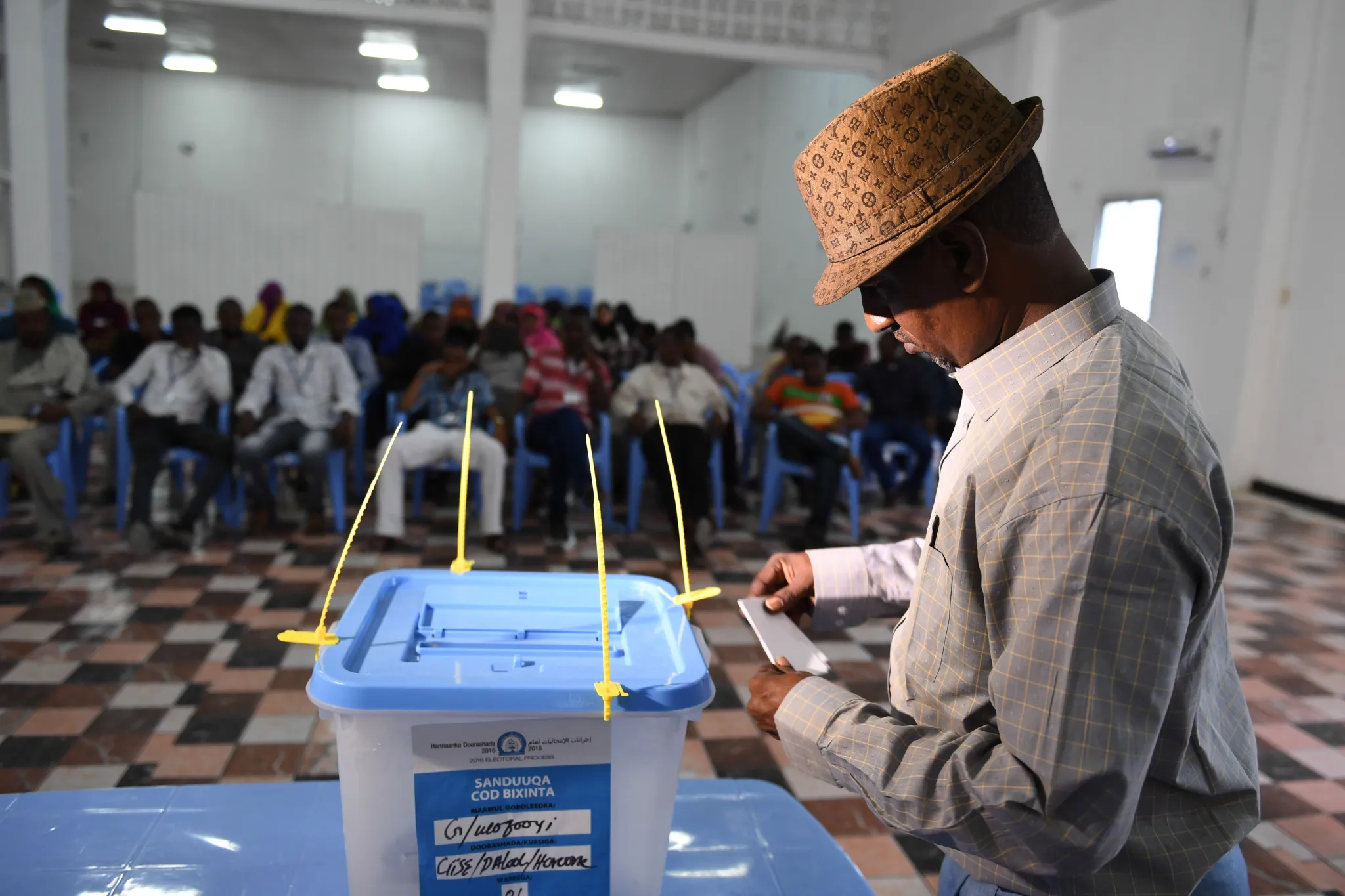Explainer: What historic local elections mean for democracy in Somalia

Situated in the far northeast of Somalia, at the very tip of the Horn of Africa, Puntland is one of the most mature and autonomous of the member states that make up the country’s patchwork federation. On 25 May, it also showed itself to be one of the most democratically advanced when it held its first statewide direct elections, becoming only the second member state to do so, after the separatist state of Somaliland.
The local elections constitute a significant milestone in Puntland’s protracted transition away from a clan-based electoral system, an integral part of its envisioned democratisation. Importantly though, the elections have coincided with a re-commitment on the part of the federal government and other member states to a similar transition, for which Puntland could serve as a valuable example.
To better understand the implications of this historic development, we have examined Somalia’s clan-based electoral systems and the prospects for a full transition to universal suffrage in Puntland and elsewhere in Somalia.
How do Somalia’s clan-based electoral systems work?
Under Somalia’s federal system of government, different clan-based electoral systems exist to elect political representatives at the national level and the member-state level. While these systems do vary, they share certain core features. Namely, they do not involve a ‘one person, one vote’ ballot but rather an indirect selection process carried out through traditional clan structures and designed to ensure that governing institutions reflect the relative size of the country’s clans. Seats in Puntland’s parliament, for example, are divided between clans in proportion to their numerical strength in the state, with each clan then selecting legislators for their allocated seats through negotiations between its elders. Members of the parliament then elect the State President in accordance with the ‘tara system’, which requires that the presidency is rotated between three clans.
Why were clan-based electoral systems introduced in Somalia?
The clan-based electoral systems were introduced to distribute political power and influence among the country’s clans, many of which had fallen into armed conflict during Somalia’s civil war (1988-1992) and the state collapse that followed. They emerged in the wake of these crises as part of state-building efforts aimed at stabilising Somalia through the establishment of power-sharing arrangements between clans that, in the absence of a central state, had come to play an important local governance role. While the electoral systems were intended to be temporary measures, they continue to be used in most parts of the country. Exceptions include Somaliland, which has fully transitioned to direct, multi-party elections, and (partially) Puntland, which has only held such elections at the local level.
What are the problems with Somalia’s clan-based electoral systems?
By concentrating power in the hands of a small number of clan leaders and denying ordinary Somalians the opportunity to directly participate in elections, Somalia’s clan-based electoral model has fostered narrow, elite-driven politics. This in turn has played a role in the extreme corruption and political interference that has come to characterise the country’s elections and to undermine its political institutions. The centrality of the clan has also hindered the political participation of women, youth and members of minority clans by institutionalising norms and hierarchies that preserve the dominance of older men and majority clans; for example, women cannot become clan elders and are therefore excluded from the selection processes reserved for those with that status. Most importantly however, the clan-based electoral systems increasingly lack popular support, with growing numbers of Somalians calling for universal suffrage.
What are the prospects of a full transition to direct, multi-party elections in Puntland?
The local elections, which were reported to have been conducted in a largely peaceful manner, give reason for hope. With the participation of most of Puntland’s political parties, the elections have given many voters their first experience of casting a ballot and electoral officials their first experience of administering a state-wide, direct election (the last direct, multi-party ballot in Puntland territory took place in 1969).
Yet it has been a transition 25 years in the making and the reasons behind the delay reveal the very significant challenges the state faces in extending universal suffrage to its higher-stakes state elections. High levels of mistrust remain between the political elite, which has led opposition groups to interpret electoral reform initiatives as attempts by incumbents to hold onto power. This has repeatedly resulted in constitutional crises and violence. Puntland’s transition has also been hindered by a weak democratic culture, due to not only a lack of electoral experience but also the absence of free media and a vibrant civil society.
What is democracy’s prognosis in the rest of Somalia?
Just three days after Puntland held local elections, the federal government and leaders from four of Somalia’s other member states announced an agreement to introduce direct, multi-party elections for local, state and federal offices. (Somaliland, the sixth member state, is de facto independent and already holds multi-party elections.) According to the agreement, the new direct electoral system will first be used in local elections scheduled in all four member states for June 2024. The relative immaturity of the administrations of these member states and their greater vulnerability to violence from the Al-Shabaab militant group (they are all located within Al-Shabaab’s operational areas in central and southern Somalia) are likely to make holding elections there even more difficult.
If Somalia’s federal administration and those of its central and southern member states are to pivot away from clan-based elections, they would do well to study the lessons of Puntland’s experience. According to recent analysis from the Peace Research Institute Oslo, these include: creating a secure environment; developing an inclusive political commitment to direct elections; and establishing reliable election infrastructure.
What might the transition to direct, multi-party elections mean for Somalia’s democratisation?
The introduction of direct, multi-party elections represents not just a change in Somalia’s electoral system, but also an integral part of a broader change in its system of governance: a move from an elite power-sharing arrangement to a democratic dispensation. By giving ordinary Somalians a direct say in who governs them, the new electoral system has the potential to expand the country’s narrow political arena, giving voice to marginalised groups and increasing civic engagement. It also promises more political accountability, with all the positive implications that this has for the quality of governance and stability.
Yet Somaliland’s extensive experience with direct, multi-party elections includes a cautionary note. Two decades after its transition to universal suffrage, the state, whose democracy has been widely admired, has struggled to rid its politics of clan influence and the problems that such influence brings. The ability of clan elders to informally shape the selection of election candidates, for example, has meant that clan interests permeate political parties and significant problems with political inclusion persist.
None of this is to diminish the importance of universal suffrage to Somalia’s democratisation, but it does underscore the fact that any electoral system used in Somalia must operate within the constraints of a clan-based society. It is a reminder too that elections alone do not make a democracy. If elections are truly to become an instrument of inclusivity and accountability in Somalia, they will need to be accompanied by the cultivation of institutions that can guarantee their credibility, including election commissions, courts, the media and civil society. It will also require inclusive political participation in all of its various forms. This will take time.




